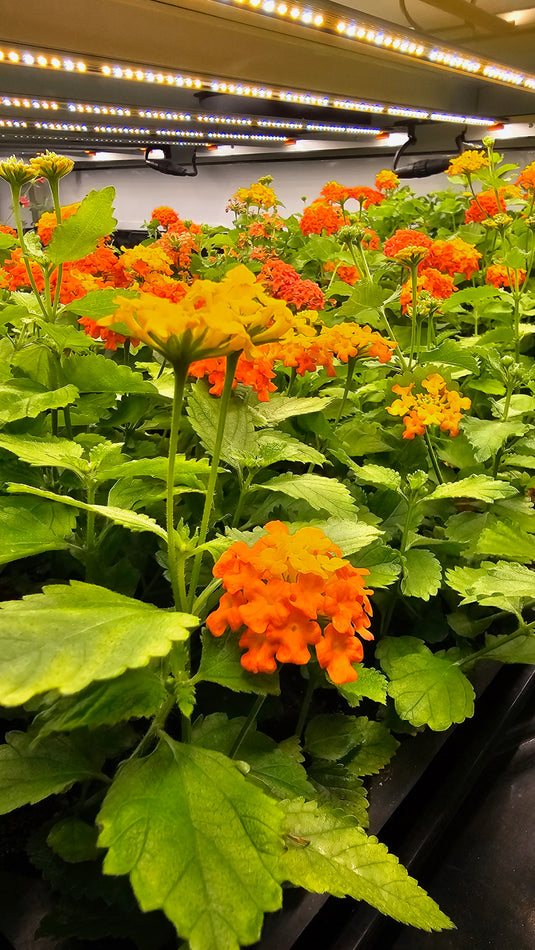Texas Lantana
$4.00
$4.00
Proudly grown indoors in a climate-controlled environment in San Marcos, TX.
Couldn't load pickup availability
- Texas Lantana (Lantana urticoides)
Sun Requirements: Full Sun
Water Requirements: Low
Height: 2-4 feet
Description: Texas Lantana is a hardy perennial shrub known for its vibrant and colorful clusters of flowers that can range from yellow to orange and pink, often displaying multiple colors on a single plant. This drought-tolerant native is highly attractive to butterflies, bees, and other pollinators, making it an excellent choice for Texas gardens seeking to promote local wildlife.
Planting Tips:
- Plant in well-drained soil.
- Space plants about 24-36 inches apart to allow for mature spread.
- Water regularly until established; afterwards, water sparingly as Texas Lantana is very drought-tolerant.
- Prune in late winter or early spring to maintain shape and encourage more robust flowering.
Ideal Season for Planting in Texas: Early Spring or Fall
Nativity to Texas: Yes
How to spot the difference between Native and Invasive Lantana:
Native Lantana (Lantana urticoides / horrida)
- Growth and Appearance: Texas Lantana grows as a hardy shrub, typically ranging from 2 to 4 feet in height. It features clusters of multicolored flowers that can vary from yellow to orange, pink, and sometimes red. The plant has a more controlled growth pattern compared to non-native varieties.
- Habitat: Naturally adapted to the Texas landscape, it thrives in various environments within the state, from open fields to roadsides and garden settings.
- Ecological Impact: Being native, it fits well within the local ecosystem, supporting native pollinators like butterflies and bees without disrupting local flora.
- Cold Tolerance: It is more cold-hardy than many non-native varieties, allowing it to survive lower temperatures typical of some Texas winters.
Invasive Lantanas (Lantana camara)
- Growth and Appearance: Lantana camara is known for its vigorous growth and can become quite bushy and sprawling, often reaching sizes larger than the native varieties. It commonly features flowers that change color as they age, contributing to its popularity in ornamental horticulture.
- Habitat: While it can be grown in similar environments as the native varieties, its aggressive nature allows it to spread rapidly and outcompete native plant species.
- Ecological Impact: Lantana camara is considered invasive in many parts of the world, including some areas in the United States. It can form dense thickets that dominate areas and displace native plants, which can disrupt local ecosystems and reduce biodiversity.
- Toxicity: Both native and invasive Lantana plants contain toxins that can be harmful if ingested by pets or livestock. However, the invasive varieties often spread more aggressively into grazing areas, increasing the risk of exposure.

